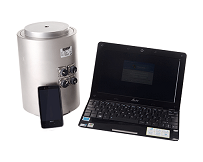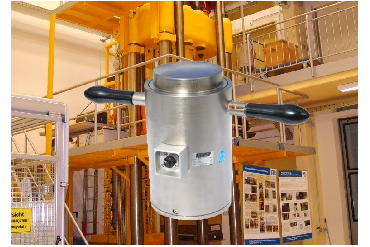SENSY has developed a range of standard reference force sensors designed for different applications (industrial testing machines, official calibration laboratories, portable calibration systems, tests according to ISO7500, …)
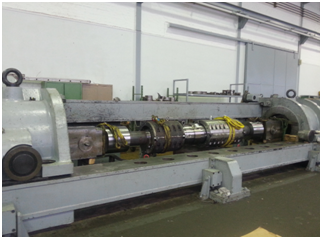 | 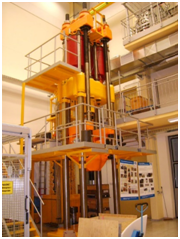 | 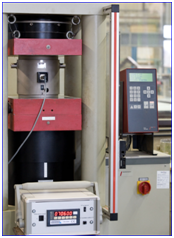 |
With our experience, we are also able to design and manufacture custom made standard reference transducers to meet our customers’ needs and constraints.
They can comply with the following standards:
- ISO 376 : standardisation of metallic materials
- ASTM E74 : calibration standard
- EN 12390-4 : testing machines
SENSY already offers a wide range of reference force tranducers.
Beyond our standard product range, SENSY has developed significant expertise in the following fields:
-
High capacity standard reference force tranducers
Calibration of a load cell involves accurately applying a known force within a given interval and recording the signal provided by the sensor. ISO 376 defines the calibration procedure.
Above 16.5 MN, there is no testing machine available with an uncertainty equal to or better than 0.02% or even 0.05%, which does not enable qualification of standard reference force transducers for ISO 376 classes, such as "00"; "0.5" or even "1".
Nevertheless, the need exists and the market in very-high-capacity sensors is developing in parallel with the gigantic industrial installations worldwide. SENSY is privileged to have witnessed that situation, having manufactured several sensors in compression and/or in tension of 20, 25 and 30 MN.
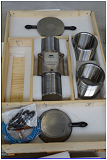
Standard reference torque tranducers
Since the relationship between the force applied to a torque meter and the electrical signal generated cannot be precisely determined by calculation, it is necessary to carry out a calibration which involves establishing the precise relationship between the torque applied to the sensor – input – and the electrical signal that it delivers – output.
The calibration of a torque meter has particularities compared to that of a dynamometer in that the known forces must be applied through a lever arm, the error of which must also be perfectly mastered. The applied torque is usually pure torque with the use of effective decoupling.

-
Strain gauge cylinder
The resistance of hardened concrete to a compressive force is very important in the context of the safety of structures made from this material.
A very important parameter in the testing of concrete compression test specimens is the uniform application of force on the specimen section. In order to verify the homogeneity of the repartition of the forces generated, the standard defines a strain gauge transducer – called a strain gauge cylinder – as well as the tests to be carried out with it and the associated criteria.
SENSY has developed a cylinder which meets the definition of the standard and is designed for checking concrete compression testing machines.
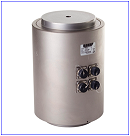
-
Digitalisation of standard reference tranducers
For a long time, national calibration laboratories have been testing standard reference force transducers with their own very high accuracy calibrated amplifiers and electronics. These electronics are extremely expensive both in terms of their investment and in the costs related to their regular calibration.
For these reasons, SENSY has offered complete measurement chains for calibration, which are economically more accessible.
